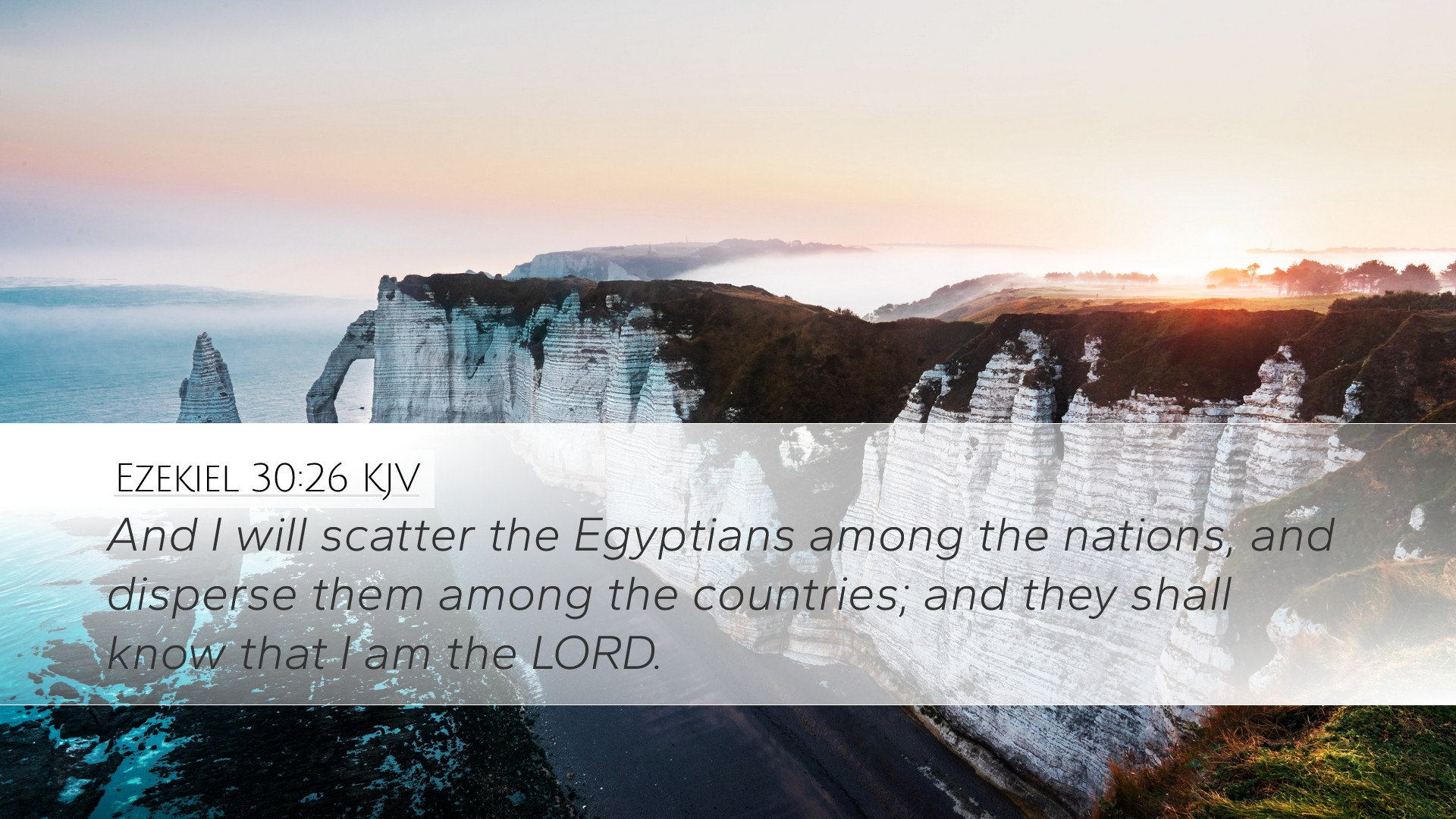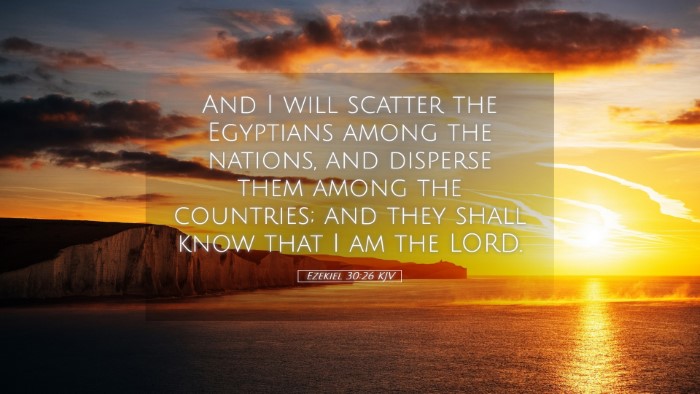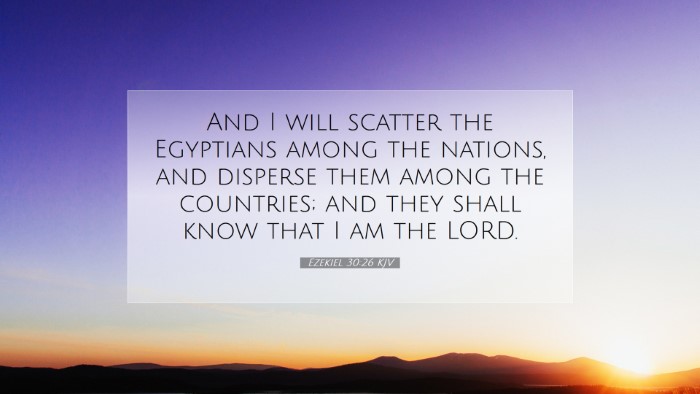Ezekiel 30:26 - A Commentary
The verse Ezekiel 30:26 reads: "And I will scatter the Egyptians among the nations, and will disperse them through the countries; and they shall know that I am the Lord."
This passage is part of a prophetic declaration regarding Egypt's impending judgment and serves as a critical point of study for theologians and scholars. Through various public domain commentaries, we can uncover deeper meanings and implications contained within this verse.
Contextual Understanding
To fully grasp the significance of Ezekiel 30:26, it is crucial to consider the broader context of the Chapter. Ezekiel prophesies against Egypt amidst a series of oracles that underscore the consequences of sin and disobedience against God. The prophet emphasizes Egypt's reliance on its own strength and might rather than the sovereignty of God, calling attention to the nation's impending downfall.
Theological Insights
- Divine Sovereignty: The phrase "I will scatter" emphasizes God's control over nations and leaders. He is not merely a passive observer; rather, He actively orchestrates events according to His divine will.
- Judgment and Dispersion: As noted by Matthew Henry, the dispersion serves as a form of divine judgment. The scattering of a nation is a sign of God's displeasure and a supernatural intervention in human affairs.
- Identification of God: The concluding phrase "and they shall know that I am the Lord" reinforces the idea that judgment serves not only as punishment but also as a means for nations to recognize God's supremacy and holiness.
Commentary Analysis
Matthew Henry's Commentary
Matthew Henry comments on the spiritual implications of scattering, noting that "the Lord will accomplish His purposes when men least expect it." He emphasizes the fear and terror that often accompany divine judgments, which cause nations to acknowledge divine authority.
Albert Barnes' Exposition
Albert Barnes elaborates that the scattering among the nations symbolizes a total disintegration of the Egyptian people's identity and structure. In his view, this dispersion reflects the futility of relying on human strength. Barnes also highlights that the acknowledgment of God's authority arises not from the exaltation of a particular nation but as a consequence of God's actions in history.
Adam Clarke's Commentary
Adam Clarke provides insights into the implications of knowing the Lord through adversity. He points out the transformative nature of suffering, suggesting that Egypt’s future humiliation would catalyze a realization of the divine. He asserts that trials often instigate a deeper understanding and reverence for God, urging contemporary believers to reflect on how challenges can serve as divine catalysts for recognition of God’s power.
Practical Application
- Recognition of God's Sovereignty: This text prompts pastors and church leaders to emphasize God’s ultimate control over global affairs, fostering trust in divine providence during uncertain times.
- Encouragement in Trials: For individuals facing personal trials, the verse serves as a reminder that suffering can lead to spiritual insight and closer relation to God.
- Call to Repentance: The passage also calls nations to repentance, encouraging a collective return to God to avoid divine judgment and to acknowledge His lordship.
Conclusion
In summary, Ezekiel 30:26 provides profound insights into the themes of divine sovereignty, judgment, and the recognition of God’s authority. Through the commentaries of Matthew Henry, Albert Barnes, and Adam Clarke, we gain a richer understanding of how this verse applies within its historical context and its implications for contemporary faith. Ultimately, it challenges believers to trust in God's sovereignty and acknowledge His presence in all aspects of life.


